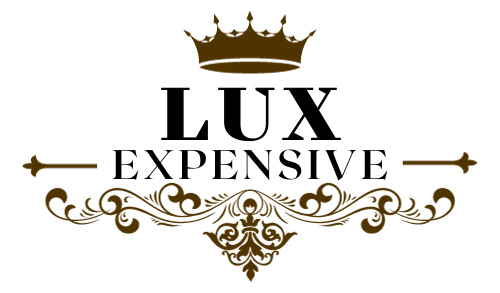Land Rover oil changes are expensive because Land Rovers require specialized oils and parts, trained technicians, and extensive inspections and diagnostics. The sophisticated AWD systems, frequent off-road use accelerating wear, and status pricing also contribute to premium service costs for these luxury SUVs. Ultimately, loyal Land Rover owners accept the high maintenance bills to own a prestigious and proficient luxury off-roader.
If you’ve ever taken your Land Rover in for a routine oil change, you’ve likely walked away with a bit of sticker shock. Unlike most vehicles that can have basic maintenance performed for well under $100, something as simple as an oil change on a Land Rover can set you back $300 or more. But why exactly are service and repairs often so expensive on these luxury SUVs? Here are the top 10 reasons Land Rover oil changes cost a premium.
Top 10 Reasons Why Are Land Rover Oil Changes So Expensive
1. Only Use Approved Oils and Filters
Like most automakers, Land Rover approves specific grades and formulations of motor oil and certain filters to meet strict factory specifications for lubricity, viscosity, detergents and other additives.
Most quick-lube shops don’t stock these exact fluids and filters which are often significantly more expensive than the more common off-the-shelf varieties, so Land Rover dealerships and service centers pass the higher costs to the customer.
2. More Oil Capacity Than Typical Vehicles
From their large V6, V8 and turbocharged engines to their 8-speed transmissions, Land Rovers simply have a higher oil capacity by design than most passenger vehicles.
Most Land Rovers take around 8 to 9 quarts of engine oil with a total oil change capacity of 12 quarts or more when factoring in oil for the transmission, differentials and other components. At $10 or more per quart for full-synthetic, approved motor oil, you do the math.
3. Extensive Multi-Point Inspections
Reputable Land Rover service centers don’t just perform an oil and filter change when you come in for a routine service. Factory-trained technicians will also conduct an extensive multi-point inspection of all major systems including brakes, suspension, driveline, electronics and mechanics, often test driving as well.
This hands-on inspection involves much more labor time to ensure everything is tip-top, adding to the overall service cost.
4. High Labor Rates for Trained Techs
It takes highly skilled, factory-trained technicians to properly service complex Land Rover SUVs loaded with proprietary technology and electronics. Most Land Rover dealership techs undergo extensive product training programs to attain the expertise necessary to work on these vehicles.
With specialized skills and training comes higher shop labor rates – often upwards of $150 per hour or more for experienced Land Rover techs.
5. Use of First-Party Parts and Lubricants
To protect vehicles that carry high price tags (often over 6-figures off the lot), Land Rover requires the use of original equipment (OE) or approved replacement parts and lubricants to meet factory specifications during covered services.
First-party components sourced directly from Land Rover tend to come at a premium price. But cheaper generic parts often don’t live up to the OE quality standards.
6. Involved All-Wheel Drive Systems
All Land Rovers utilize proficient all-wheel drive systems to handle demanding environments. Unlike basic front-wheel or rear-wheel drive cars though, servicing complex AWD systems involves much more intricate components and labor.
In addition to engine oil, gear oil must also be changed in the transfer case, center differential and both front and rear differentials which all need proper filling and checks for any leaks. This complexity contributes to higher service bills.
7. Underbody Service Needs
To tackle mud, snow, steep inclines and other grueling terrain, Land Rovers boast robust metal underbody skid plates and protective covers that take a beating over time. Factory maintenance schedules call for regular inspection and servicing of the underbody components which is no easy task on these heavy 4x4s.
Service techs often need to tightly crawl under the vehicle for extended periods or place them on vehicle lifts to access the underbody – adding more back-straining labor and equipment fees.
8. High Part Replacement Rate
The combination of owners frequently pushing their Land Rovers aggressively off-road plus the sheer complexity of their drivetrain systems means wear-and-tear parts like brakes, oxygen sensors, fluids, filters and suspension components tend to wear out quicker than in normal passenger cars and often need premature replacement.
For example, heavy-duty brake pads and rotors wear rapidly when control-descending rocky terrain. More part replacements mean higher materials costs and more labor time adding up on service invoices.
9. Advanced Diagnostics Required
Land Rover P38, L322 and L405-generation models are loaded with the latest sensors, control modules and advanced driver-assistance electronics to operate vehicle stability control, traction control, adaptive dynamics, lane keep assist and other technologies seamlessly.
When engine warning lights activate, Land Rover techs utilize expensive, dealer-level diagnostic computers and software to interface with the vehicle and pinpoint faults down to individual sensors or wires in a sea of sophisticated electronics. High-tech diagnostics equals high shop bills.
10. Status Symbol Service Pricing
Let’s face it– the Land Rover badge carries an elevated status that buyers of premium SUVs expect to pay more to be associated with. While they may grumble about the high price tags of routine services and repairs, most loyal Land Rover owners accept the running costs associated with owning an iconic luxury off-roader.
Much like routine maintenance on a Range Rover Sport screams prestige over an oil change on a Honda CR-V, there is a degree of status symbol pricing at play in the service department too.
FAQS.
Are land rover oil changes Good?
Yes, Land Rover oil changes are good since they involve factory-approved oils and filters specifically engineered to withstand extreme temperatures in the vehicle while preventing harmful deposits. Techs also perform multi-point inspections.
Are land rover oil changes Worth The Price?
The premium price of Land Rover oil changes reflects the specialized fluids, trained technicians, and extensive servicing required to maintain these complex vehicles, so they are worth it for owners prioritizing luxury off-road performance.
Where To Buy land rover oil changes?
Land Rover oil changes should be purchased at authorized Land Rover dealers and repair shops with certified technicians experienced with these vehicles. They have the parts, tools and skills needed to properly service Land Rovers to factory specifications.

